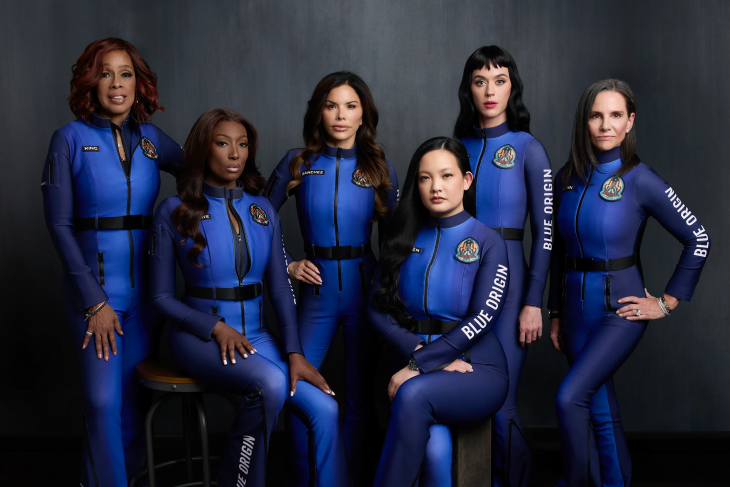
On April 14, 2025, pop icon Katy Perry joined an all-female crew aboard Blue Origin’s New Shepard rocket for a brief suborbital flight, orchestrated by Lauren Sánchez, fiancée of Amazon founder Jeff Bezos. The mission, dubbed NS-31, aimed to celebrate female representation in space but quickly became a lightning rod for criticism.
The Mission: Symbolism or Spectacle?
The NS-31 flight featured six prominent women: Katy Perry, journalist Gayle King, aerospace engineer Aisha Bowe, civil rights activist Amanda Nguyen, film producer Kerianne Flynn, and pilot Lauren Sánchez. The 10-minute journey reached the Kármán line, offering a few minutes of weightlessness before returning to Earth. Perry marked the occasion by singing “What a Wonderful World” and unveiling a setlist for her upcoming tour, adding a personal touch to the voyage.
Backlash: Feminist Milestone or Performative Stunt?
Despite its historic nature, the mission faced significant backlash. Critics labeled it a “performative and tone-deaf spectacle,” arguing that it trivialized genuine feminist achievements and space exploration. The $28 million ticket price and the involvement of celebrities led to accusations of elitism and questioned the mission’s scientific value.
Social media amplified the controversy, with some users mocking the flight as a “girlboss space party.” Commentators like Olivia Munn and Jessica Chastain criticized the venture for being out of touch, especially during times of economic hardship for many.
Crew’s Defense: Inspiration and Representation
In response to the criticism, crew members emphasized the mission’s inspirational goals. Gayle King highlighted the potential to inspire young girls, while Lauren Sánchez and Aisha Bowe pointed to the scientific data collected and the dedication of Blue Origin’s staff.
Katy Perry defended her participation, stating that the mission was about “the future of commercial space travel, for humanity in general, and for women.”
The Broader Debate: Billionaire Ventures vs. Public Good
The NS-31 mission reignited debates over the role of private companies in space exploration. Critics argue that such ventures prioritize spectacle over substance and divert attention from pressing issues like climate change and economic inequality. The involvement of Jeff Bezos, a figure often scrutinized for labor practices and political donations, further complicated public perception.




